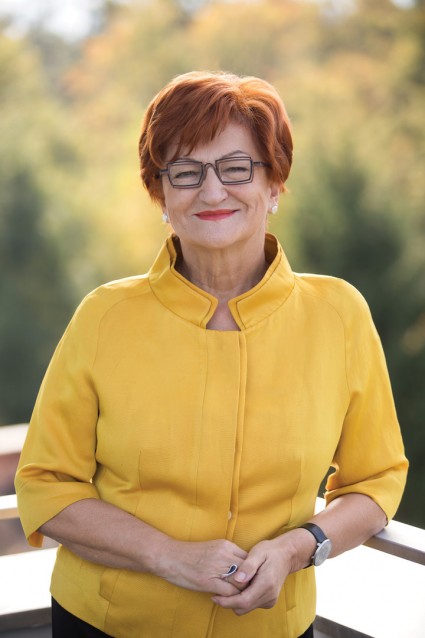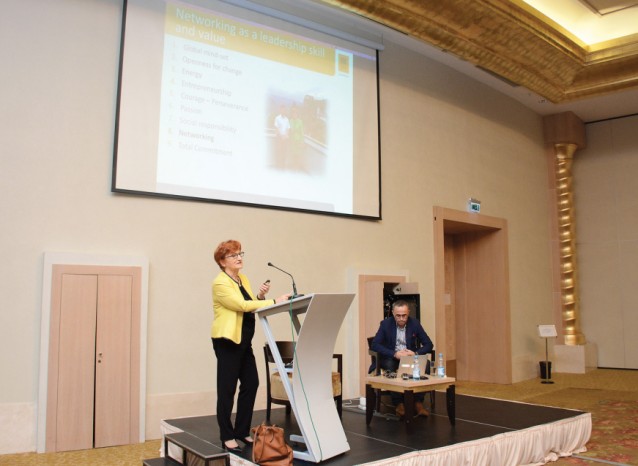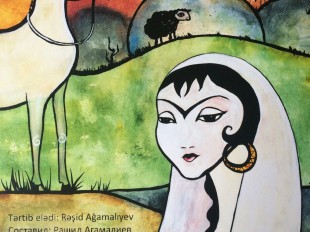Professor Danica Purg is founding President of the IEDC-Bled School of Management in Slovenia, described by The Financial Times as “arguably eastern Europe’s best-known business school,” and President of CEEMAN, the international association for management development in dynamic societies. She also runs the European Leadership Centre, is President of the UN Global Compact Slovenia and serves on the advisory board of several international management schools. She has received numerous awards and widespread recognition for her contribution to international business education.
During a brief networking visit to Azerbaijan recently, Dr Purg shared with Visions her insights into the challenges she faced while building a successful business school, the latest innovations in education and leadership and the importance of harnessing one’s creativity and self-belief.
VoA - The IEDC-Bled School of Management has become one of the leading management schools in the world. What were the early challenges you faced in establishing such a school and how were you able to respond to them?
DP - The first challenge was to establish a modern management institution in a then still socialist country. Today, China shows that this is possible under certain conditions. However, in 1986, this concept was not yet known. Other challenges were to find my position in a man’s world and to find the best educators in the world and convince them to come to teach at IEDC. My response to all the challenges was to continuously show that everything is possible if you believe in your mission and if you are always a step ahead of possible political or practical issues. The war in Yugoslavia made me still more convinced about my vision to develop an international school.
What do you see as the key personal attributes needed for successful leadership today?
Inspiring and motivating people; showing a sustainable vision of business and society; being an example of ethical and responsible behaviour.
It has been said that organisations are over-managed and under-led. Do you support such a statement and, if yes, how do we develop greater leadership within organisations?
We have to develop strategic capabilities; a long-term vision of managers and business leaders on the one hand, and a capability amongst employees to manage themselves on the other.
You have devoted your life to learning and education. Were you always interested in education or is it something you steered towards later in life?
I always had goals in my life and I always wanted to learn. I liked going to school and later on my aim was to learn as much as possible – this included learning foreign languages and visiting other countries. I studied in the US, France and in the Netherlands. When I was young, I wanted to become an actress, then, because of my studies, I went into politics, and afterwards, I discovered my wish to transfer my knowledge and experience to other people. In my view, learning and teach- ing are two sides of the coin. Communication skills have become my strength. To sum it up, education, learning and teaching have always been prominent parts of my life.
How can young people respond to the significant challenges that they face today in a world that is changing so rapidly?
My advice to young people is the following: be curious; learn languages; travel to learn about other cultures; take every job you can get, outside of your field of education also, because every working experience is an enrichment; network, not only on social media, but especially in the physical world.
You have spoken passionately about the need for innovation in education, especially in leadership development - what have been the innovations in leadership development that have most impacted you?
I spoke about leadership in this globalized and complex world. I stressed the importance of developing the senses of creativity and intuition. In the world of big data and fast changes functional knowledge is important, but not sufficient. We have to be able to absorb new information and knowledge continuously. Personally, I have found inspiration and creativity in the arts. Art is helping us to see more, to hear more, to feel more. We see that music is a tool to become a better listener, visual art helps us to become better observers, helps us to reflect etc. We can learn very much from the creative processes in the arts. A creative and innovative mindset, developing your senses and the emotional intelligence that every leader needs.
What is your favourite type of art?
I tend to prefer expressionist and abstract art, because it looks for inspiration in the emotional world and tries to find a global language, rather than a national or regional one.
What is your involvement in Azerbaijan?
I am looking for new professional and personal contacts in order to promote the activities of IEDC and CEEMAN. IEDC has a lot to offer the business world, because of our great international professors from all over the world, and CEEMAN is connecting management schools, offering the International Management Teachers Academy and other programs to improve management education and make it relevant for the society at large.
Is this your first visit to the country and have you enjoyed your stay?
Yes, it was the first visit, but certainly not the last one. I enjoyed it very much to be in Azerbaijan and to meet so many professional and friendly people. I hope to be back very soon and to also see other parts of your country.
In terms of business and management, have you noticed any parallels between Slovenia and Azerbaijan?
I know the situation in Slovenia quite well, while I am a beginner concerning the situation in Azerbaijan. I had meetings with impressive people and overall, I was impressed by what I saw in Azerbaijan. However, it is too early to make a comparison between our countries.
What do you think are the major challenges to creating change and development in Azerbaijan?
My wish is to continue to promote your beautiful country globally and to show what it is able to offer. As in the case of Slovenia, a smaller country cannot offer everything, thus we have to make strategic decisions. If we wish to see real change in society, openness and transparency are very relevant, in order to make it possible for everybody to participate.
As a successful businesswoman yourself, what advice would you give to young Azerbaijani businesswomen?
Realise that the future lies in your hands, stay self-conscious and connect yourself with the business world, women and men. Women can also help each other in an often male-dominated world.
And what is the achievement you are most proud of?
I am most proud of the establishment of a very successful international management school, the first one in Central and Eastern Europe.
|
IEDC-Bled School of Management is focused primarily on executive education, thus on managers and leaders, and on potential managers and leaders. All education is in English and participants come from all over the world.
Besides the International Executive MBA, which takes place in modules so that a busy manager can afford to study, the school also offers a four-week “mini” MBA, called the General Management Program, that is designed in two modules of two weeks, as well as a two-week Young Managers’ Program every year in July. IEDC also designs programs according to the specific needs of companies and organizations, which can be held in Bled or in clients’ headquarters anywhere in the world. Professors who teach come from the best business schools from all over the world. Find out more at www.iedc.si. |





